First I'm going to give you what you came for, and then feel free
to read on if you would like to see how the 15 strongest was
determined.
to read on if you would like to see how the 15 strongest was
determined.
#15. Mexico
#14 Pakistan
#13 Germany
#12 Brazil
#11 Iran
#10 United Kingdom
#9 Saudi-Arabia
#8 North-Korea
#7 Egypt
#6 Turkey
#5 France
#4 India
#3 Russia
#2 China
#1 United States of America
To go into some detail on how I decided what countries to place in the Top 15,
and why they are placed in this particular order.
I first had to decide what makes a military so great. In the general
sense of things, there are hundreds if not thousands, of small factors that must
be powering the machine at any given time. Taking this into consideration, I have
made a valid attempt to group these factors into major categories.
For instance, the amount of healthy young men, birthrates, amount of people in the working class,
amount of people suited for military but not in military, so on and so forth;
all have to do with a country's military capabilities, but instead of spending
forever trying to determine what those numbers are for each country on the
planet, i just used one major category called "Country's Total Population".
Given the total population of a country you can determine that those with a much
higher amount of citizens will generally have more in those smaller
categories.
Now that you understand why i chose these certain categories, i'll tell
you those categories and why they are a very good indicator of a countries
military strength.
- Total Population
The resource of humans is unmatched in a military, because without them
you have none.
- Total Population in Active Military
Clear indicator of how sturdy a country's immediate offensive and
defensive military capability adds up.
- Amount of Operational Tanks
Since WWI tanks have been major deciders on every battle
front.
- Amount of Armored Personnel Carriers (APC) and
Infantry Fighting Vehicles (IFV)
The purpose of these are not direct battles, but for enforcing the army as
whole. These vehicles are perfect for what they do: Safely move the troops. The more
of these you have, the better guarantee you have getting your troops to and from
the battle.
- Amount of Operational Logistical Vehicles
The major support system to any military are the "miscellaneous" vehicles
that carry all the supplies. No fuel tankers, and your tanks loose incredible
capabilities; no food or water, and you lose your men... lose your men and lose
the war.
- Amount Total of Military Grade Air Craft
While the Air Force doesn't win wars all on its own... Take away those
fighter jets, bombers, and helicopters then you'll see just how vulnerable those
countries become.
- Amount Total of Military Grade Navy Ships
History has shown us that a country's coastal boarder is a very good
indicator of military strength, because it provides an easier defense against
invading enemies, and allows for the development of a Navy. With that in mind,
having a Navy alone gives a country a higher rating, but we must also look at
the actual numbers of the many different types of ships that make it both tactical
and over all powerful. For instance, submarines and carriers are so tactful
that they can can make or break a Navy in a very short period of time.
- Countries Total Land Mass
The sheer size of a country and the layout can mean the difference between
fighting off an invasion and falling to the enemy. Ask any American
Soldier that has fought in the Middle East; ask Russia about WWII,
Napoleon about Egypt, or the British about the Revolutionary War in America. The
pros far outweigh the cons in a country's total size; both due to the available
resources, and the tactics involved with so much geography.
- Oil Production (barrels per day)
The Amount of Oil a country can produce on its own could mean everything to
military abilities. This is taken on the basis that if a country was all on its
own, and by being on its own would it be able to fuel all those tanks, ships,
and planes without the oil from other countries? Most countries are an easy No.
So the more oil a country can produce in a day, the higher its military strength becomes.
To put into perspective, Kuwait is clearly weaker than Greece when looking at man power
the amount of people, air craft, navy units, and sheer size of the countries, but if the
countries had all outside help and resources cut off, we would see them become
far more equal. Kuwait could easily be self sufficient in fueling its number of vehicles
while Greece would come to a halt.
- Total Spending on Defense Budget
It's not how much you spend, it's how you spend it. That's true, but if
you are spending billions of dollars more than the competitor, it's very
likely that you have certain capabilities he doesn't. Tanks don't run for free, and
special forces don't do so well with $10 gadgets.
- Weapons of Mass Destruction Capabilities
It is exactly as it reads. A countries ability to apply massive damage
with few bombs. This includes not just "does a country have nuclear weapons" and
"if so how many" but also major ballistics that do a certain amount of damage.
Then if they have them, how big of a reach does this country have with
those weapons, because if you have 10,000 short range ballistic missiles, you're
not much of a threat to anyone 2 or 3 countries over.
500 mile missiles are frightening when you're 499 miles away.... not so
much at 5,000 miles away.
That being said, only 9 countries have a confirmed nuclear arsenal of
some size, 1 has capabilities, and after that only 5 other countries have short
to long range Ballistics. Which means only 15 countries can fight a battle more
than 100 miles away, without having to move.
Now that you have all this information; there are a few countries i feel
deserve an honorable mention. This is because these countries don't really excel
to the very top in any of these areas, but overall they have a very well rounded
and established military, and do frequent the top of the charts. For example
Italy doesn't have weapons of mass destruction, or large land mass; but they do however
have a major influence in population size, and military expenditures.
My 5 Honorable mentions:
- Israel , South Korea, Italy, Syria, and Japan
and why they are placed in this particular order.
I first had to decide what makes a military so great. In the general
sense of things, there are hundreds if not thousands, of small factors that must
be powering the machine at any given time. Taking this into consideration, I have
made a valid attempt to group these factors into major categories.
For instance, the amount of healthy young men, birthrates, amount of people in the working class,
amount of people suited for military but not in military, so on and so forth;
all have to do with a country's military capabilities, but instead of spending
forever trying to determine what those numbers are for each country on the
planet, i just used one major category called "Country's Total Population".
Given the total population of a country you can determine that those with a much
higher amount of citizens will generally have more in those smaller
categories.
Now that you understand why i chose these certain categories, i'll tell
you those categories and why they are a very good indicator of a countries
military strength.
- Total Population
The resource of humans is unmatched in a military, because without them
you have none.
- Total Population in Active Military
Clear indicator of how sturdy a country's immediate offensive and
defensive military capability adds up.
- Amount of Operational Tanks
Since WWI tanks have been major deciders on every battle
front.
- Amount of Armored Personnel Carriers (APC) and
Infantry Fighting Vehicles (IFV)
The purpose of these are not direct battles, but for enforcing the army as
whole. These vehicles are perfect for what they do: Safely move the troops. The more
of these you have, the better guarantee you have getting your troops to and from
the battle.
- Amount of Operational Logistical Vehicles
The major support system to any military are the "miscellaneous" vehicles
that carry all the supplies. No fuel tankers, and your tanks loose incredible
capabilities; no food or water, and you lose your men... lose your men and lose
the war.
- Amount Total of Military Grade Air Craft
While the Air Force doesn't win wars all on its own... Take away those
fighter jets, bombers, and helicopters then you'll see just how vulnerable those
countries become.
- Amount Total of Military Grade Navy Ships
History has shown us that a country's coastal boarder is a very good
indicator of military strength, because it provides an easier defense against
invading enemies, and allows for the development of a Navy. With that in mind,
having a Navy alone gives a country a higher rating, but we must also look at
the actual numbers of the many different types of ships that make it both tactical
and over all powerful. For instance, submarines and carriers are so tactful
that they can can make or break a Navy in a very short period of time.
- Countries Total Land Mass
The sheer size of a country and the layout can mean the difference between
fighting off an invasion and falling to the enemy. Ask any American
Soldier that has fought in the Middle East; ask Russia about WWII,
Napoleon about Egypt, or the British about the Revolutionary War in America. The
pros far outweigh the cons in a country's total size; both due to the available
resources, and the tactics involved with so much geography.
- Oil Production (barrels per day)
The Amount of Oil a country can produce on its own could mean everything to
military abilities. This is taken on the basis that if a country was all on its
own, and by being on its own would it be able to fuel all those tanks, ships,
and planes without the oil from other countries? Most countries are an easy No.
So the more oil a country can produce in a day, the higher its military strength becomes.
To put into perspective, Kuwait is clearly weaker than Greece when looking at man power
the amount of people, air craft, navy units, and sheer size of the countries, but if the
countries had all outside help and resources cut off, we would see them become
far more equal. Kuwait could easily be self sufficient in fueling its number of vehicles
while Greece would come to a halt.
- Total Spending on Defense Budget
It's not how much you spend, it's how you spend it. That's true, but if
you are spending billions of dollars more than the competitor, it's very
likely that you have certain capabilities he doesn't. Tanks don't run for free, and
special forces don't do so well with $10 gadgets.
- Weapons of Mass Destruction Capabilities
It is exactly as it reads. A countries ability to apply massive damage
with few bombs. This includes not just "does a country have nuclear weapons" and
"if so how many" but also major ballistics that do a certain amount of damage.
Then if they have them, how big of a reach does this country have with
those weapons, because if you have 10,000 short range ballistic missiles, you're
not much of a threat to anyone 2 or 3 countries over.
500 mile missiles are frightening when you're 499 miles away.... not so
much at 5,000 miles away.
That being said, only 9 countries have a confirmed nuclear arsenal of
some size, 1 has capabilities, and after that only 5 other countries have short
to long range Ballistics. Which means only 15 countries can fight a battle more
than 100 miles away, without having to move.
Now that you have all this information; there are a few countries i feel
deserve an honorable mention. This is because these countries don't really excel
to the very top in any of these areas, but overall they have a very well rounded
and established military, and do frequent the top of the charts. For example
Italy doesn't have weapons of mass destruction, or large land mass; but they do however
have a major influence in population size, and military expenditures.
My 5 Honorable mentions:
- Israel , South Korea, Italy, Syria, and Japan
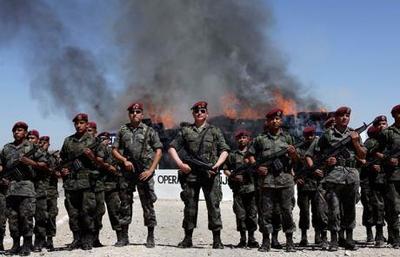
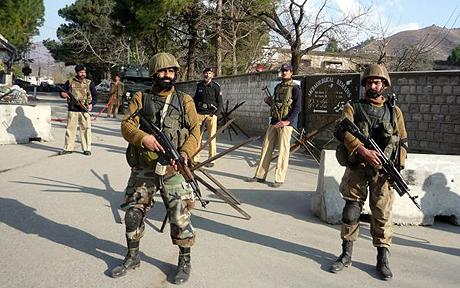
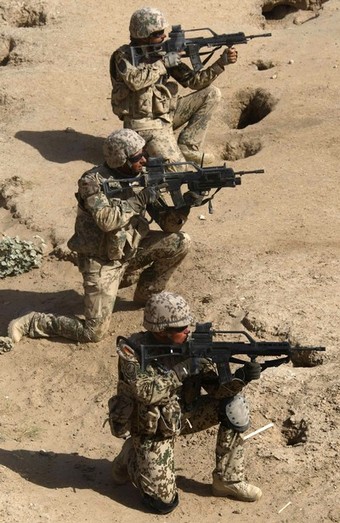
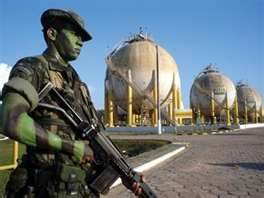
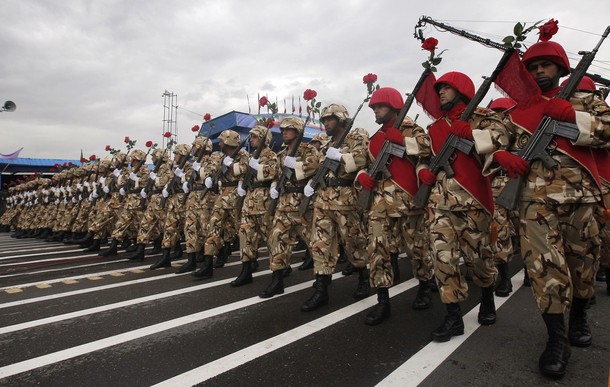
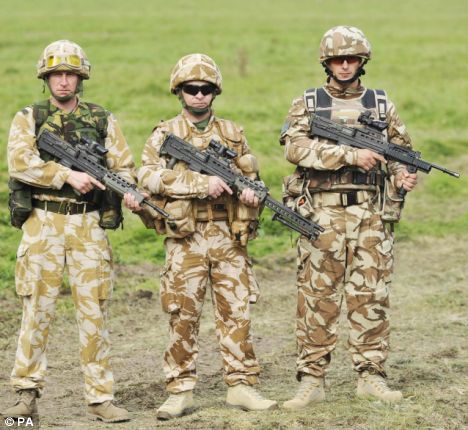
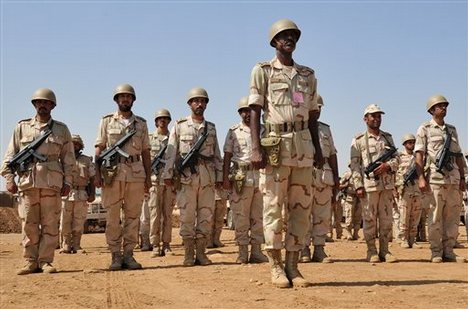
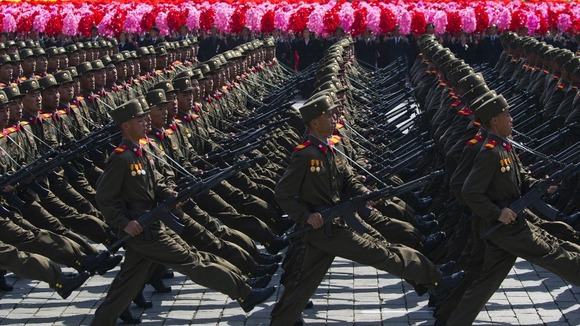

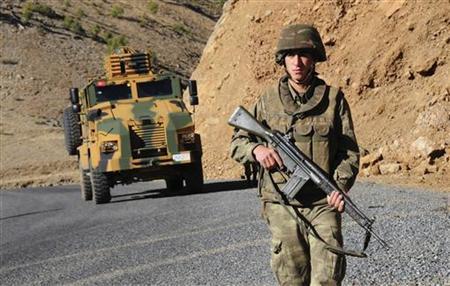

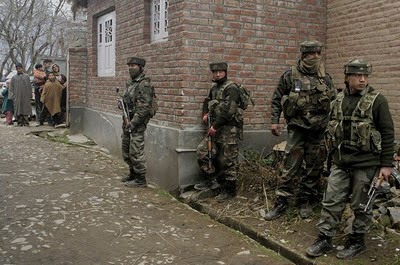

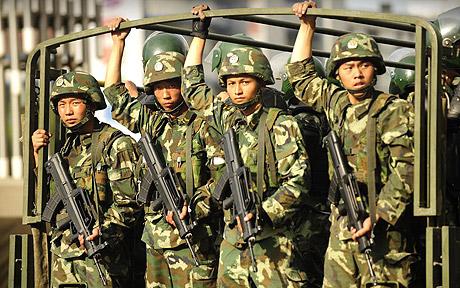

 RSS Feed
RSS Feed